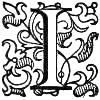LETTERS FROM MUSKOKA.
BY
AN EMIGRANT LADY.

LONDON:
RICHARD BENTLEY AND SON,
Publishers in Ordinary to Her Majesty the Queen.
1878.
[All Rights Reserved.]

PREFACE
TO THE
“LETTERS OF AN EMIGRANT LADY.”

In laying before the public a sketchof our “Bush” experiences duringthe first year after our arrival inMuskoka, Ontario, Canada, I desire to statethe reasons which prompted us to such animprudent step as emigration, without eventhe moderate capital necessary for any onewho would start with the slightest chanceof success. The Franco-German War in1870 was the means of breaking up our[vi]happy home in France, which, with oneshort interval, had been the shelter of myfamily and myself during fifteen years ofwidowhood.
The commencement of the war found usliving in the outskirts of St. Pierre-lès-Calais,a suburb of Calais, and a busy place, full oflace factories. Our house and grounds, quiteopen to the country at the back, fronted thecanal which communicates with the sea atCalais.
When the war had made some progress,and the German army appeared to besteadily advancing through France, we foundourselves in a most unpleasant dilemma—infact, literally between fire and water!
The civic authorities made known that, incase of the approach of a German army, itwas their fixed intention to cut the sluices,and to lay the adjacent country under waterfor a distance of ten miles, and to a depth[vii]of seven feet. Our large, rambling, convenientold mansion, which shook with everygale of wind, and had no cellarage nor securefoundation of any kind, we felt would surelybe submerged.
Moreover, the military commandant notifiedthat in case Calais were threatened withsiege, all houses and buildings within themilitary zone would be blown up, to allowfree range for the cannon on the ramparts.This was pleasant intelligence to people inthe direct line of fire, and with a certainty ofvery short notice to quit being given. Still,we took the chances, and stood our ground.
We felt the deepest sympathy for theFrench, and would willingly have helpedthem to the extent of our very limitedmeans, but could only do so by lending bedsand bedding for the wounded, which we did,and which were all scrupulously returned atthe close of the war.
At this time I had a married daughterresiding at Guiñes, where her husbandwas mathematical professor in the principalEnglish school, conducted by a Frenchgentleman. In the middle of August, aboutmidnight, we heard a carriage drive to thedoor, and found that my son-in-law hadthought it more prudent to bring his familyto a safer place than Guiñes, w